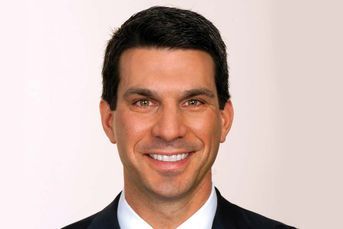FPA still trying to scrub broker exception
Financial planners are making a last-ditch effort to convince securities regulators to trash a pending rule that they…
Financial planners are making a last-ditch effort to convince securities regulators to trash a pending rule that they detest.
But insiders say the Securities and Exchange Commission is expected to adopt the proposal, known as the Merrill Lynch rule, with minor changes within a month or two.
The Financial Planning Association made its case in an 11-page letter to the SEC this month.
The missive was a follow-up to the first face-to-face meeting between FPA executives and new SEC Chairman Harvey Pitt in September.
While acknowledging that Mr. Pitt was noncommittal, FPA director of government relations Duane Thompson expresses optimism that the SEC will come down on the side of planners.
“We’re hopeful that given some change in the commission, and the fact that after a couple of years they’ve had the chance to reconsider arguments against the rule, they’ll withdraw it,” Mr. Thompson says.
conflict of interest
Securities regulators in 1999 proposed the broker-dealer rule to fix what they see as an inherent conflict of interest in commission-based brokerage accounts.
Regulators say that as long as brokers’ pay is based on commission from trades, their interests will never align with those of their customers.
But the 1940 Investment Advisers Act requires anyone who gets “special compensation” – typically interpreted as anything other than commissions – to register as an investment adviser.
The proposed rule would change that. It would let the test be whether the person has discretion over a client’s assets rather than how the client pays for those services.
In other words, even if the account is fee based, which the SEC prefers, the broker could be exempt from registering as an investment adviser as long as advice is incidental.
Consumer advocates and the FPA worry that brokers who give advice will be able to hide behind the rule simply by calling a client’s account a brokerage account.
In its recent letter, the FPA offers three new reasons for regulators to kill the rule.
For one, the FPA says the rule conflicts with congressional efforts to let 401(k) participants get advice from plan providers, which is currently forbidden under federal law.
Mr. Thompson says the SEC needs to consider whether offering pension plan advice would be considered incidental to a broker-dealer’s services if Congress enacted changes on that front.
further argument
The FPA also makes two other points.
First, the group says, wording in the legislation that created the Investment Advisers Act prevents the SEC from granting the exemption.
Second, the FPA argues, previous formal comments from the SEC suggest the agency already has determined that it doesn’t take much for advice to cross the line from being incidental to being part and parcel of investment services provided on a fee-only basis.
The Securities Industry Association, the Washington trade group for the brokerage industry, has supported the proposed rule, and hopes to see it adopted.
“The no-action position is in effect, and things are going smoothly with that,” says Dan Michaelis, an SIA spokesman.
But, says Mr. Thompson, “if someone has a suitability claim, they can’t necessarily point at one rule as [the culprit]. It’s hard to find the bodies that are buried under this kind of rule.”
Linda Stapf, a planner and certified public accountant in Sykesville, Md., is among those frustrated that the commission has taken no action on the rule, essentially letting it remain in existence on a temporary basis.
“I’m being held to a much higher standard,” Ms. Stapf says. “I’m comfortable with that standard, but everyone should be sitting at the same spot that I am.”
Learn more about reprints and licensing for this article.





